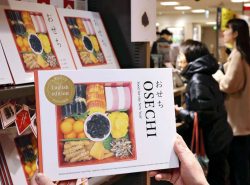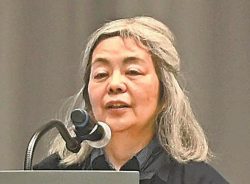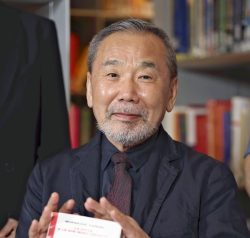Tohan Wants to Keep People in Contact with Paper Books; Distributor Catering to Japan’s Small Local Stores
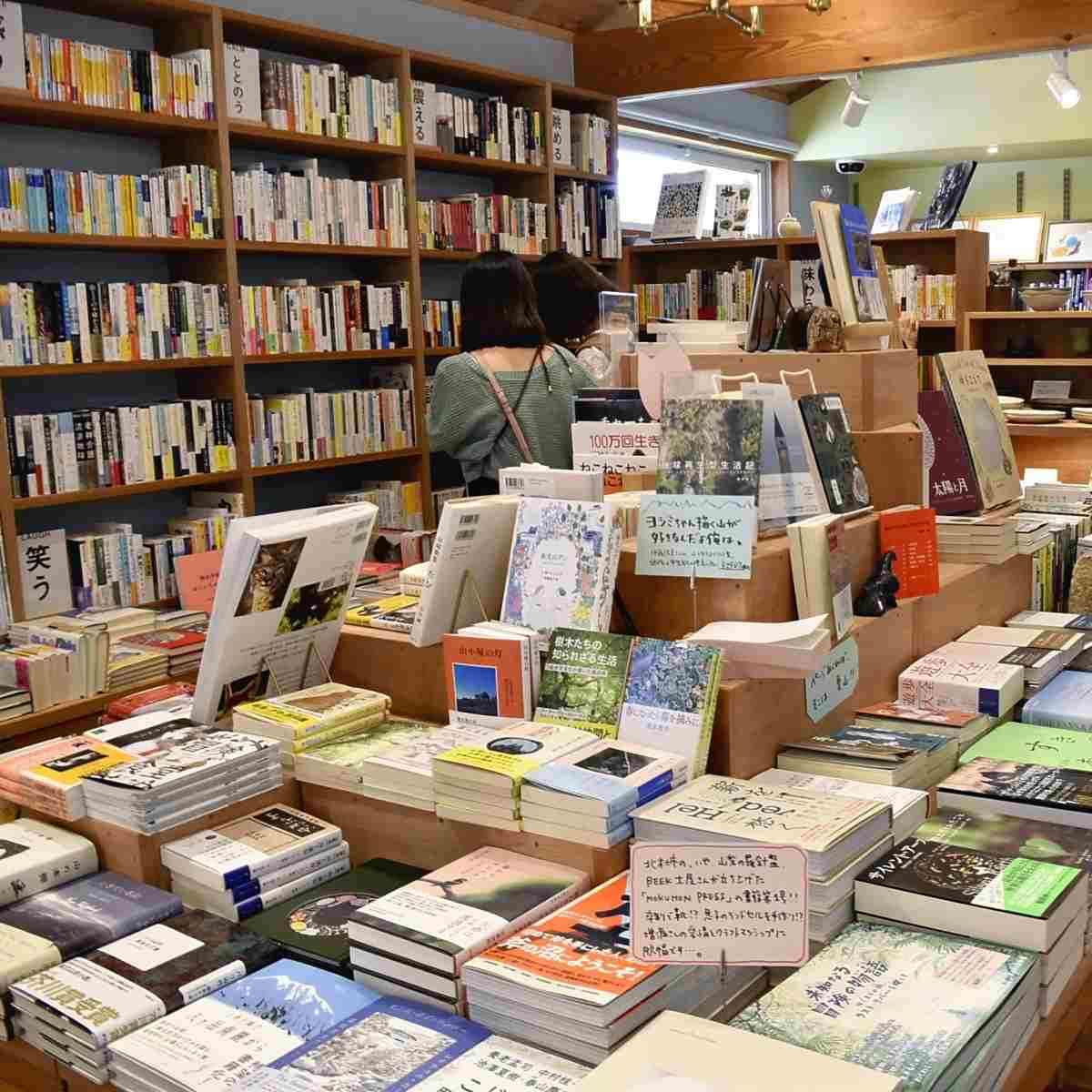
Nohohon Books & Coffee in Hokuto, Yamanashi Prefecture
20:00 JST, October 20, 2024
The efforts of major book wholesaler and distributor Tohan Corp. to support the opening of small bookstores came from a sense of urgency to address the decline in the number of bookstores in cities, which led to the loss of opportunities for people to come into contact with paper books.
In March, the Economy, Trade and Industry Ministry set up a project team to promote bookstores under the direct supervision of the head of the ministry, which helped to raise people’s interest in bookstores.
Nohohon Books & Coffee, which opened in 2022 in Hokuto, Yamanashi Prefecture, at the foot of the Yatsugatake mountain range, is a cozy bookstore with a wood-toned interior.
In the about 100-square-meter store, 3,000 books are arranged by themes such as “create” and “think.”
Those books were selected by the store’s owner, Junpei Watanabe, 47, who is also a copywriter.
The bookstore is located in a vacation home area and is popular with young families who have moved there. Visitors also can have coffee at the store. “I want to provide a space where people can drop in casually,” Watanabe said.
Inspired by Watanabe’s bookstore, Tohan started the project called “Honyal.”
A book wholesaler and distributor connects bookstores and publishers by delivering publications, including paperback books and magazines, to bookstores.
The Honyal initiative reduces transportation costs by removing magazines from shipments, making it possible for small bookstores with monthly transactions of ¥300,000 to ¥1 million to do business with Tohan.
By doing business with Tohan, which handles a wide range of publications, such small bookstores can stock a variety of books.
“We want to lower the hurdles for opening bookstores, not just [focus on] how to keep current bookstores from going out of business,” Tohan Chief Executive Officer Toshitaka Kondo, 63, said.
After The Yomiuri Shimbun reported on Tohan’s initiative in July, the company received around 30 inquiries, including one from a person who wanted to open a bookstore in a depopulated area.
In addition to the downturn in the publishing industry, the soaring costs of labor and fuel are making transportation by truck more expensive, making it difficult for a book wholesaler and distributor to stay in business.
Tohan recorded a current profit of ¥1.8 billion in the consolidated financial results for the entire group in fiscal 2023. Although the company secured a profit through its real estate business and other operations, its book wholesale and distribution business posted a loss of ¥1.3 billion.
Nevertheless, Tohan decided to start the new project because the company believed that if it did not increase the number of places where customers could come into contact with paper books, people would become less interested in them. This would shake the foundation of the company’s business, it said.
According to a document titled “Publication sales volumes in 2023,” released by Nippon Shuppan Hanbai Inc., 20.5% of domestic sales of publications are through online bookstores. Even now, more than half of readers still buy books in bookstores, as the percentage of sales through bookstores is 58.2%.
The decline in the number of bookstores in towns deprives people of the opportunity to come into contact with books, leading to a vicious cycle of sluggish book sales.
According to the Japan Publishing Organization for Information Infrastructure Development, there were 10,918 bookstores nationwide in fiscal 2023, having declined by 30% over the preceding decade.
In the same period, the estimated sales value of paperbacks, which used to be the main product of bookstores in towns, fell by more than 40% from ¥129.3 billion to ¥74.1 billion, according to a survey by the Research Institute for Publications.
In a 2023 survey by the Cultural Affairs Agency, more than 60% of respondents said they had not read a book in a month.
After the ministry set up the project team to promote bookstores in March, there has been a growing recognition that bookstores are cultural hubs in local communities.
After interviewing people involved in the book industry, the ministry on Oct. 4 compiled a list of issues to be addressed to revitalize bookstores, including the book distribution system and how libraries purchase books.
The ministry has also published a guide for booksellers on how to use the support measures.
The guide presents measures that bookstores can use from the support projects and subsidy systems that are being implemented for small and medium-sized enterprises and retailers. The ministry also encourages new bookstores to enter the market.
“With the emergence of online bookstores that sell a wide range of books, readers’ attitudes [about bookstores] have changed, and small bookstores with a distinctive ‘select shop’ feel are now attracting attention. I think it will be important to create bookstores in a variety of forms,” said Sophia University Prof. Kyoko Shibano, who specializes in media studies.
The government and the private sectors are both being asked how they can nurture small bookstores that conduct a face-to-face business.
Stores take action
Bookstores are taking the initiative to promote their paperbacks.
This autumn, a group of 12 bookstores, including Tottori Prefecture-based Imaibooks and Books Ogaki Co., which has stores in Kyoto Prefecture and elsewhere, launched the BUN-1 Grand Prix, an event to select the bestselling paperback novel among general readers.
The event featured a section of nominated books and offered free booklets with staff recommendations, so that participants could experience the appeal of paperback novels in a more casual way.
“By creating a hit paperback from a bookstore, I hope it will provide an opportunity for people to discover new books and authors,” said Ogaki Bookstore Azabudai Hills manager Yoshitaka Akai, who was involved in the project.
Leading bookstore chain Maruzen Junkudo Bookstores Co. held its second “Nonfiction award chosen by booksellers,” in which booksellers nationwide vote for the best work. Last year’s winner Kanako Nishi’s “Kumo o Sagasu” (Looking for spiders) is a memoir of the author’s experience of cancer treatment abroad that has sold 290,000 copies.
Top Articles in Culture
-

BTS to Hold Comeback Concert in Seoul on March 21; Popular Boy Band Releases New Album to Signal Return
-

Director Naomi Kawase’s New Film Explores Heart Transplants in Japan, Production Involved Real Patients, Families
-

Tokyo Exhibition Offers Inside Look at Impressionism; 70 of 100 Works on ‘Interiors’ by Monet, Others on Loan from Paris
-
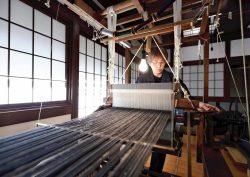
Traditional Japanese Silk Hakama Tradition Preserved by Sole Weaver in Sendai
-

Exhibition Featuring Yoshiharu Tsuge’s Manga World Underway in Chofu, Tokyo; Unique, Surreal Works Draw Steady Crowds
JN ACCESS RANKING
-

Producer Behind Pop Group XG Arrested for Cocaine Possession
-

Japan PM Takaichi’s Cabinet Resigns en Masse
-

Man Infected with Measles Reportedly Dined at Restaurant in Tokyo Station
-

Israeli Ambassador to Japan Speaks about Japan’s Role in the Reconstruction of Gaza
-

Videos Plagiarized, Reposted with False Subtitles Claiming ‘Ryukyu Belongs to China’; Anti-China False Information Also Posted in Japan



